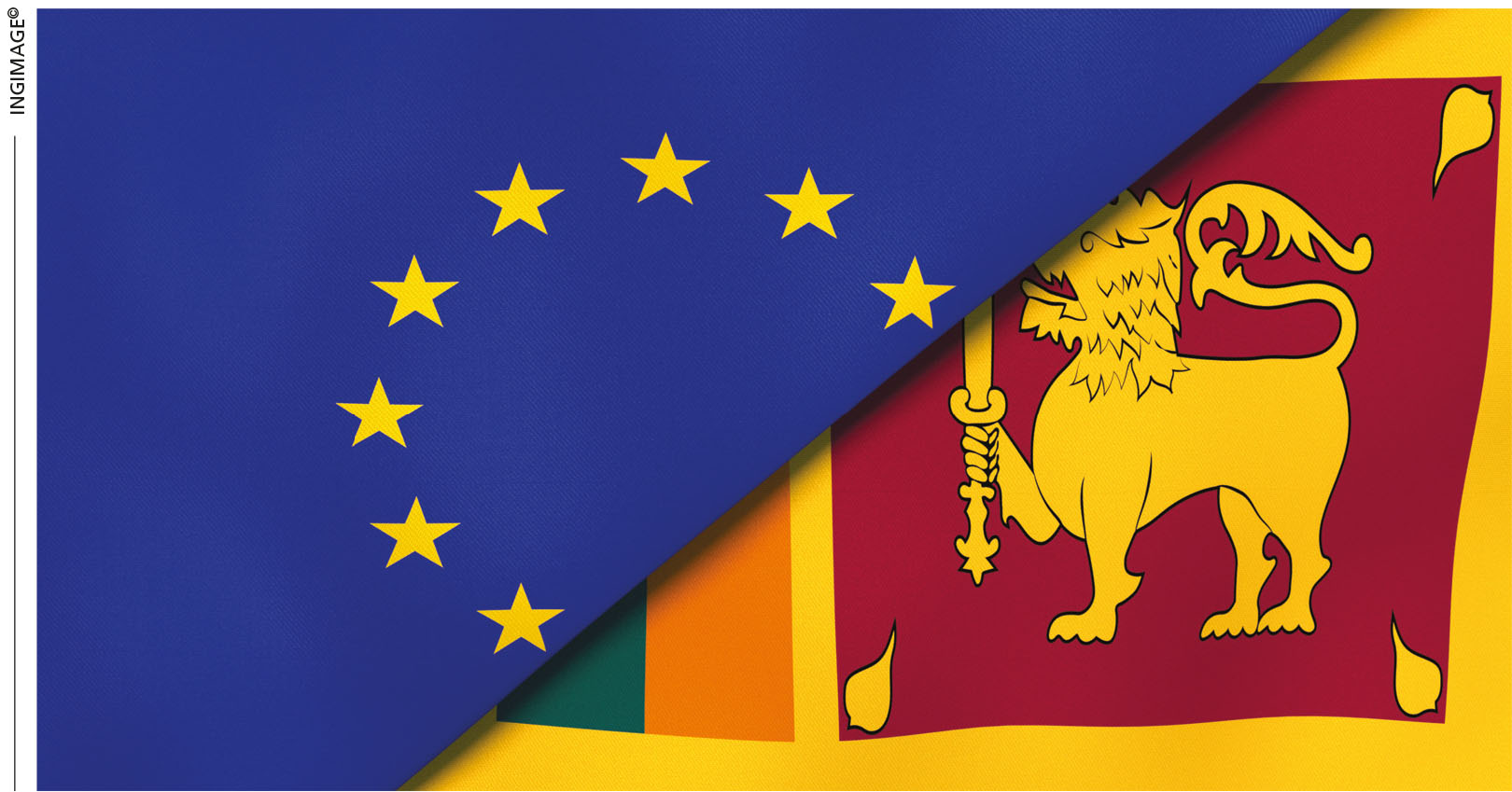EURO TRADE
GSP+ AND EUROPEAN RESOLVE
The EP pressures the EC to leverage GSP+ against Sri Lanka – Janaka Perera

Two important aspects of the European Parliament’s (EP) resolution on Sri Lanka passed on 10 June last year didn’t draw the attention of those who discussed it, observes Gomi Senadhira. He is former Chairman of the WTO Committee on Trade and Development and erstwhile Minister (Commercial and Economic Affairs) at Sri Lanka’s mission to the European Community in Brussels.
The first is that although the EP – as one of the EU’s three legislative branches – possesses the requisite power, it doesn’t formally have the right to initiate action on resolutions. That power lies with the EU Commission (EC).
And the second is that the resolution on Sri Lanka was the third such adopted by the EP in a period of 10 months. The other two related to the Philippines and Pakistan.
Senadhira notes that the resolution on Sri Lanka is similar to the other two; however, he maintains that there’s a distinct difference in one paragraph in the resolution on Sri Lanka whereby the EP calls on the EC and the European External Action Service (EEAS) to initiate action.
This is the relevant paragraph in the resolution on the Philippines: “Given the seriousness of the human rights violations in the country, [the EP] calls on the European Commission, in the absence of any substantial improvement and willingness to cooperate on the part of the Philippine authorities, to immediately initiate the procedure, which could lead to the temporary withdrawal of GSP+ preferences…”
According to Senadhira, after the European parliament passed its resolution on the Philippines in September 2021, one of the coauthors of the resolution – EP Member Hannah Neumann – pointed out that “we don’t have these many tools in the EU to protect human rights and democracy, and maybe our trade policy is the strongest one…”
The Philippines “still enjoys trade privileges of the EU under the GSP+ scheme that are supposedly linked to improvements in human rights,” Neuman added.
However, the EC had not initiated any action to revoke the Generalised Scheme of Preferences Plus (GSP+) concessions for months.
When compared to the resolutions on the Philippines and Pakistan, Sri Lanka’s is less harsh. For example, it doesn’t call for immediate action to revoke GSP+; it only calls on the EEAS to use it as leverage to push for advancement of Sri Lanka’s human rights obligations – and as a last resort, initiate procedures for the temporary withdrawal of Sri Lanka’s GSP+ status.
Senadhira thus raises the question whether the action by the EC vis-à-vis the resolution on Sri Lanka could also be less harsh than action taken on the Philippines.
Sri Lanka regained access to generous EU tariff preferences under GSP+ on 19 May 2017 on the condition that it replaces its Prevention of Terrorism Act (PTA) and effectively implements 27 international conventions including those on human rights.
According to past reports, Sri Lanka was the EU’s 69th largest trading partner in goods – accounting for 0.1 percent of Euro trade. EP members are calling on the EC and EEAS to use the facility as leverage to push for progress on Sri Lanka’s human rights obligations.
The resolution notes that the GSP+ scheme offers the incentive of better access to EU markets for the country’s exporters in return for further progress in fully implementing those conventions.
On 19 May 2017, the EU granted Sri Lanka’s exports better access to the EU. It did so under the EU’s GSP+. These one-way trade preferences consist of the removal of duties on 66 percent of tariff lines covering an array of products including textiles and fisheries.
Senadhira points out that similar to other countries enjoying the facility, the removal of customs duties for Sri Lanka is accompanied by rigorous monitoring of the nation’s progress in implementing these conventions. The EU is its second largest trading partner after China – and the second main export destination.
However, Senadhira also alludes to the EU’s double standards and discriminatory practices while pontificating to developing countries. He draws attention to EU Ambassador Denis Chaibi’s warning to Sri Lanka about violating WTO rules.
In an article published in the Daily Mirror last year, Senadhira comments: “Notwithstanding the EU’s total disrespect to most important WTO rules and the international rules governing the GSP, Ambassador Denis Chaibi had warned Sri Lanka about violating the WTO rules. Why?”
“Because Sri Lanka had temporarily suspended the import of very few products, mainly motor vehicles, to save foreign exchange during this difficult period. So no more shiny new BMWs and
Mercedes cars imported from the EU,” he writes.
He stresses the need for Sri Lanka to act fast and carefully develop WTO compatible trade restrictive measures to limit the import of luxury products. Why? Because the international rules the ambassador was referring to apply only to the weak and not powerful nations.




